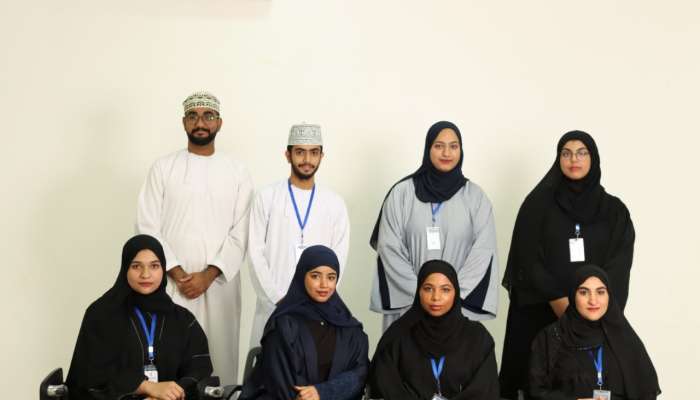
Muscat: An Omani student company 'Hyaal' has succeeded in creating environment-friendly, safe and biodegradable fishing lines.
The student company, 'Hyaal', from the University of Technology and Applied Sciences in Muscat has made the fishing line using cellulose fibres extracted from the mesquite tree (marine Ghaf).
“The idea came with the aim of creating an environmentally friendly product with the aim of reducing the negative impact of the current fishing equipment in order to reach high quality, effective, sustainable and environmentally friendly fishing products," Husna bint Khalfan Al Habsi, CEO of the company (Hyaal), said.
"The team began searching for sustainable materials for making fishing lines, and after conducting studies and research, we managed to extract the materials from the Prosopis juliflora tree, known as mesquite (marine Ghaf), which is one of the invasive species harmful to the environment, " Al Habsi added.
Al Habsi confirmed that the company was able to turn the damage of mesquite trees on the environment into a solution by using cellulose fibres from the mesquite tree to create biodegradable fishing lines, in addition to creating a local product and not relying on imported products from abroad.
“Making the end product was a big challenge with a lot of difficulties including obtaining sustainable materials that met the needs of fishermen was a major challenge. So we spent a great deal of time researching and testing different materials before settling on cellulose fibres extracted from the mesquite tree, " the CEO of Hyaal company said.
The CEO of Hyaal Company stated that developing the manufacturing process to produce high-quality and durable fishing lines also posed another challenge. It is currently being worked on by conducting different technical trials and processes to get the right balance between strength and flexibility in the produced yarns.
Al Habsi pointed out that environmentally friendly products can sometimes be more expensive than traditional products, so it was necessary that we work hard to keep our costs down while ensuring that our products meet high standards and specifications.
With regard to the impact of products, Al Habsi confirmed that this innovation will reduce the negative impact of fishing equipment on the environment. Where traditional fishing line is often made from synthetic materials that can take hundreds of years to decompose and contribute to ocean pollution. Our product made from cellulose fibres derived from the mesquite tree will degrade in a matter of months and have a much lower environmental impact.
She also explained that the company is working on a number of steps to turn this innovation into a successful commercial product, through research and development, in addition to creating a prototype of fishing line to test its strength, flexibility and durability in various conditions that simulate fishing conditions.
Regarding future plans, CEO of Hyaal said that the company is working on many of them, the most important of which is the development and expansion of our innovations in environmentally friendly fishing equipment, represented in expanding our product line to include other environmentally friendly fishing equipment such as: cages, nets, etc., to continue investing in research and development to improve the quality and performance of our products.
The CEO added that the company is currently working to protect intellectual property rights to innovate and register the product with the Ministry of Commerce, Industry and Investment Promotion, followed by obtaining a patent, and other procedures related to the trademark and others.
Al Habsi stressed the importance of education and awareness, as we plan to continue to educate consumers and raise awareness about the negative impact of traditional fishing equipment on the environment, and the benefits of using environmentally friendly alternatives, which helps us build a customer base and contribute to a more sustainable fishing industry.
The company's student team includes: Husna bint Khalfan Al Habsi, Mohammed bin Salim Al Saeedi, Hana bint Salim Al Habsi, Hebat Allah bint Khamis Al Balushi, Taif bint Mahmoud Al Siyabi, Al Warith bin Amer Al Hadidi, Ghaida bint Ali Al Ameri, Marwa bint Salem Al Subhi, and Hawra bint Suleiman Al-Hinai, and Faisal bin Habib Al-Siyabi.